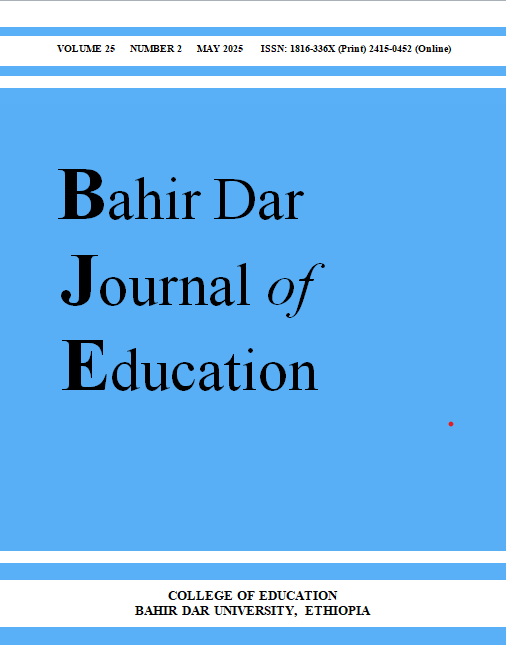Main Article Content
Sustainable primary school leadership in Ethiopia: The support or hindrance of policies of collective capacity and school culture
Abstract
The study adopts a case study design to explore whether collective capacity and school culture policies support or impede the adoption of sustainable school leadership (SSL) in the Ethiopian educational system. Sources of data are policy documents such as education and training policy, education sector development programs, primary school standards, and policies of selection and placement of school principals. We select these sources based on the criteria that they are official documents, have relevant content, and are functional at the time of the study. We analyze data with a combination of thematic and content analysis. The finding of the study indicates that some collective capacity and school culture policies support the materialization of SSL, whilst others undermine, or at least do not support, its implementation. Although policies appear to support SSL adoption, in practice, certain key collective capacity and school culture policies have a substantial undermining influence, and others lack mechanisms for practical implementation. We conclude that collective capacity and school culture policies largely undermine rather than support the materialization of SSL. We recommend to the Ministry of Education, among other things, the improvement of the policy of qualification level of teachers and the field of qualification of principals, and the provision of a manual to support the creation and maintenance of school culture.







